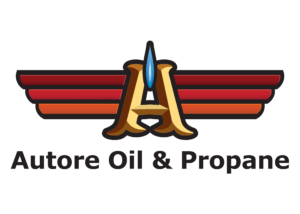In case of an emergency, please call our office 24/7 at (906)484-2233.
Autore Oil & Propane takes propane safety seriously. All of our staff—not just the drivers—have completed the National Propane Gas Association’s (NPGA’s) Certified Employee Training Program. We offer these below safety tips and videos to help you use this reliable fuel source safely!
IF YOU SUSPECT A GAS LEAK:
- No flames or sparks! Immediately put out all smoking materials and other open flames. Do not operate lights, appliances, telephones, or cell phones. Flames or sparks from these sources can trigger an explosion or a fire.
- Leave the area immediately! Get everyone out of the building or area where you suspect gas is leaking.
- Shut off the gas. Turn off the main gas supply valve on your propane tank if it is safe to do so. To close the valve, turn it to the right (clockwise) as far as it will turn.
- Report the leak. Get to a safe location away from the gas leak and call us immediately. If you can’t reach us, call 911 or your local fire department.
- Do not return to the building or area until an Autore Oil service technician determines that it is safe to do so.
- Get your system checked. Before you attempt to use any of your propane appliances, ensure that one of our qualified service technicians checks your entire system to ensure that it is leak-free.
For you and your family’s safety, we follow all industry guidelines and always perform a gas check when you become a customer of Autore Oil and Propane.
Propane is used all across America every day. It is clean and safe and, like with all fuels, even safer when handled with proper caution.
Here are a few tips to help you make the most of propane.
- Check your propane tank gauge regularly. This helps you know if you need a fill-up, and can also let you know if your tank is suspiciously low, indicating a possible leak. If you’re not sure how to read your propane tank gauge, watch the How to Check a Propane Tank Gauge video. Remember, if your tank runs empty, it MUST be inspected before it can be filled.
- Practice caution throughout the year. We regularly provide seasonal safety tips to help you stay safe all year—everything from what to do in inclement weather to mowing in summer. Check back seasonally for tips.
- Schedule regular propane tank maintenance. If your tank hasn’t been inspected for a while, give us a call. We have certified professionals who can check your system.
The Commercial Safety Data Sheet is available on our Commercial page.
Consumer Safety Video Series
Propane lets people live comfortably, wherever and however they want. Watch these videos to learn some safety tips for living in a propane home.
Propane has a remarkable safety record due in large part to the stringent codes and regulations developed by the propane industry and the National Fire Protection Association (NFPA).
How safe is propane? It won’t ignite when combined with air unless the source of ignition reaches 940º F. Plus, it is nontoxic, produces minimal emissions and is not harmful to soil or water.
Separately, make sure your carbon monoxide detectors are in good working order and that the batteries have been changed recently. And don’t forget, you can always contact us if you have an emergency! We are always happy to help.


